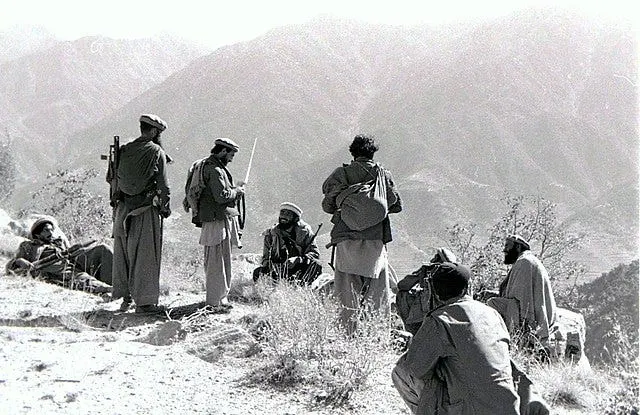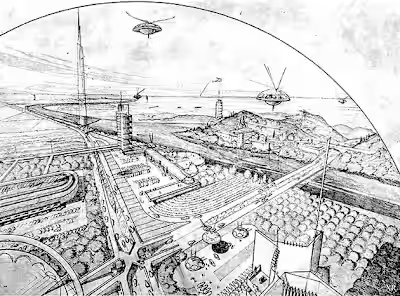Conflict is more profitable than peace — A look at Pakistan and…
Even though there might be a theory that lies along with the idea of peace being a much larger way of allowing profits to be gained for globalization, economic boomings, and a healthy environment for the people residing in a state, the discussions are only pondered upon in relevance to assumptions and considering the world to be in a perfect order which may ignore the political, power and the sheer capability of human nature to influence everything. The world we reside in today works upon fear as a tool to achieve gains and create chaos which may allow the stakeholders to profit from it and be able to achieve their gains. While there may be instances where conflicts and wars have been misunderstood, there should be a realization of how the masses have had a capitalist mindset rather than opting for a solution, and the problems and issues were provoked more than usual. This paper discusses some of the reasons to understand the statement and analyze whether peace may be profitable to those stakeholders in the long run or short run.
As we know, during a state of crisis or chaos, the masses may be coerced to take measures and steps to the point where they may choose the benefit of the people over gaining attention and backing, however, the news outlets may always gain from chaos and conflict rather than peace. It is known that having peace will not only be a lack of content for them but will also ensure that people tend to not constantly be around negativity. Only the events taking place near a person can be directly observed. They must mostly rely on the media to inform them about the political developments in their nation, social issues, global wars, and nearly everything else that occurs in society at large. The current world is fast-moving than it has ever been, and governments may tend to believe that they may gain from continued conflict more than peace, which happens due to all parties involved creating hostility for each other and everyone at stake. Negotiated agreements frequently include concessions that are politically and economically unviable for governments to implement because they are unpopular with significant voters who vehemently dislike the opposition. The complications are also made more complicated by political parties organizing around these concessions. As a result, nations start looking for compromises they can live with while still waging war, preferring peace agreements with their adversaries.
This suggests that the process of going from a state of war to one of peace is much more complex than one might think since war only serves to increase animosity between parties and worsen the issue of economic concessions. As a result, the concept of peace is no longer necessary because the primary principle behind the conflict is still its economic viability. This has been thoroughly seen in our nearby geographical location and has been mentioned in the history books as well.
Pakistan has been the state in the region that has been most impacted by the violence in Afghanistan, and in turn, it has had a variable impact on the politics of the Afghan groups. Consecutive wars in Afghanistan during the past 25 years have destroyed the nation’s economy, society, and governmental institutions while also strengthening ties, contacts, and a shared sense of destiny between Afghanistan and Pakistan based on the stability and peace in that nation. The problem of competing interests between the two nations, however, runs parallel to a sense of shared destiny. For two main reasons, this has been the most fundamental issue affecting Pakistan’s relations with Afghanistan. This has allowed Pakistan to be in hot waters for a long time. The presence of constant threats yet managing to tame mujahideen to keep them satisfied with policies has kept the country in compromising situations.

During the early cold war between USA and USSR, the measures taken by the government ensured a firm relationship with the US government, and had been there for the United States ever since in their proxy wars and cold wars when needed, Pakistan in return got rid of Soviet pressure through this relation. These dynamics of conflict only led to other parties such as neighboring countries and warfare suppliers to gain from it. However there was not only the United States gaining from the fall of the Soviets, but Pakistan as well. By assisting in the suppression of the nationalist aspirations of tribes whose territories cross the Pakistani-Afghan border, Pakistan encouraged the establishment of a government in Afghanistan that would lessen the country’s susceptibility to internal turmoil. Pakistan was driven by additional internal factors to provide the majority of the funds and assistance it received during the Soviet intervention to Islamist organizations. Pakistan specifically aimed to prevent Pashtun nationalist parties from becoming stronger because they might later aspire to carve out an independent Pashtun state from Pakistani and Afghan land. Pakistan also made an effort to dissuade locals from supporting Afghanistan’s plans to redraw the Durand line. As a result, Pakistan started to back Gulbuddin Hikmatyar’s Hizb-i Islami, a Pashtun-dominated organization that promoted an Islamist rather than nationalist ideology.
As a result of the U.S. granting Pakistan broad leeway over how to distribute its covert assistance to the mujahidin located there, Pakistan was able to offer Hikmatyar the majority, though not enough to make up for the organization’s internal flaws. Since Hikmatyar was unable to overthrow the Afghan government forces led by Defense Minister Massoud and seize Kabul in 1993–1994, Pakistani policy was temporarily at a loss and looking for a new ally. The U.S. and Saudi Arabia both provided funding to Pakistan after the incident of 9/11, and have been constantly providing security through financial, ammunition, or any means to fight ‘the war against terror’. On the contrary, there had been a mass massacre which to date is seen on the borders of Pak-Afghan where military personnel who are working for mediocre salaries have been sacrificing themselves against this conflict while the institutions have created a conflict that has been milking them for some time now. This has allowed Pakistan to be in a strong position against its archrivals but has created imagery where the world no longer safeguards any genuine call for help, which for instance was seen when monsoon flooding took place and people around the globe refused to help due to the institutions creating a fundraiser for personal gains through conflicts and turmoils.
In relevance to our context, peace itself has been seen to be not productive or profitable enough for the masses, only a few suffer through the brutality during conflicts whilst the rest may prosper and find new ways to exploit developing or under-developing areas. There have been at least 20 significant conflicts in Africa over the past ten years. This paper’s aim is not to offer a thorough empirical analysis of the African conflict or its causes. However, one aspect stands out: economic factors heavily influence how current and potential belligerents behave. Many times, economies that rely on the exploitation of natural resources are directly linked to violence. The war economies supporting the belligerents rely on natural resource revenues and eventually economic motives overtake political ones. Be it Egypt, South Africa, or the least developed nations in the region, there have been massive interventions by parties that had no direct relations in the conflicting matters or civil wars of the states, but due to larger scheme exploitations, the interventions happened and a far worse crisis was witnessed. One of the most neglected crises in the Central African Republic is where guns have ruled over the people and have been brutalized to allow several militant activists and mafias to take over the region to extract resources.
To summarize the above examples and studies, the concept of capitalist peace is an uncommon phenomenon that can only exist in fully developed nations with functional economies. The results of conflict are more favorable than the results of peace in the vast majority of the world. Whether peace is perceived to be profitable or not, the conflict will remain fundamental in all human cultures, even as the war continues to occur in international politics due to the inherent human nature and our inclinations of fear and greed. This system identifies as a much larger problem that only is purposed for stakeholders that gain from it and the ones known of its effects are also to be blamed as they may not be severely affected or profited, but turn a blind eye towards it.
Like this project
Posted Jul 4, 2023
Even though there might be a theory that lies along with the idea of peace being a much larger way of allowing profits to be gained for globalization, economic…
Likes
0
Views
42






